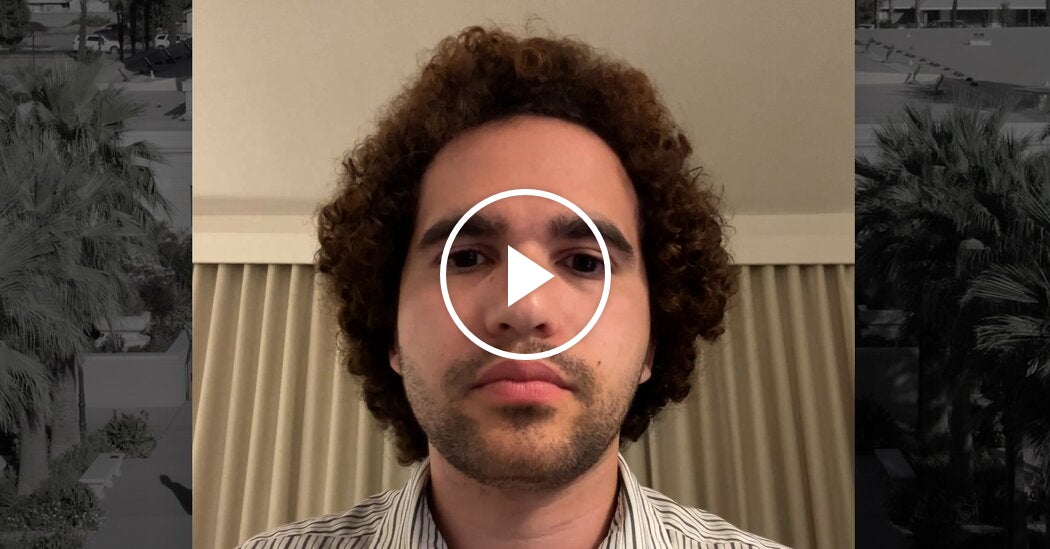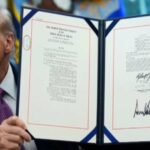In the battleground state of Arizona, a surprising shift is taking place among American Mormon voters. Typically a reliable Republican voting bloc, members of the Church of Jesus Christ of Latter-day Saints in Arizona are growing increasingly disillusioned with former President Donald Trump. This shift in political allegiance could have significant implications for the 2024 election, potentially delivering a key battleground state to the Democrats in November.
Kellen Browning, a seasoned reporter for The New York Times, is currently on assignment in the swing states of the 2024 election. In her latest report, Browning delves into the complex dynamics at play within the Mormon community in Arizona and the potential impact on the upcoming election.
Historically, Mormon voters in the United States have leaned towards the Republican Party. The conservative values and emphasis on family and faith often align closely with the principles espoused by the GOP. However, the tumultuous presidency of Donald Trump has caused a rift within the Mormon community in Arizona.
Trump’s brash rhetoric, divisive policies, and personal scandals have been a source of contention among many Mormons. His behavior has been seen as antithetical to the values of compassion, honesty, and humility that are central to the teachings of the Church of Jesus Christ of Latter-day Saints. As a result, some members of the Mormon community in Arizona have begun to question their allegiance to the Republican Party.
Browning’s reporting reveals that this disillusionment with Trump has created a significant opportunity for the Democratic Party in Arizona. With Mormon voters comprising a sizable portion of the electorate in the state, their shifting political preferences could tip the scales in favor of the Democrats in November.
The Mormon community in Arizona is not monolithic in its political views. Like any large and diverse group, there is a range of opinions and perspectives among members of the Church of Jesus Christ of Latter-day Saints. However, the growing dissatisfaction with Trump is a common thread that is bringing together Mormons from different backgrounds and political leanings.
In her interviews with Mormon voters in Arizona, Browning uncovers a sense of moral discomfort with Trump’s leadership. Many express concerns about his character, his treatment of others, and his disregard for the truth. These are values that are deeply ingrained in the teachings of the Mormon faith, and Trump’s behavior has put many members of the community in a difficult position.
Some Mormons in Arizona are grappling with the dilemma of whether to prioritize their political beliefs or their religious values. For those who have traditionally voted Republican, the prospect of supporting a Democratic candidate may be a challenging one. However, the alternative of continuing to align with a party and a leader that they find morally objectionable is becoming increasingly untenable.
The 2024 election presents a unique opportunity for Mormon voters in Arizona to make their voices heard and to shape the future of their state and their country. With the potential to swing the outcome in a key battleground state, Mormons have the power to influence the direction of the election and to send a powerful message about the importance of integrity, compassion, and honesty in leadership.
Browning’s reporting sheds light on the complexities of the political landscape in Arizona and the shifting dynamics within the Mormon community. As the election draws near, the choices that Mormon voters make will have far-reaching implications for the future of the state and the nation as a whole.
The Democratic Party is keenly aware of the opportunity presented by disaffected Mormon voters in Arizona. Campaign strategists are working to capitalize on this shift in allegiance and to appeal to the values and priorities of the Mormon community. By reaching out to Mormon voters and addressing their concerns, Democrats hope to secure their support and to secure a crucial victory in November.
The Republican Party, on the other hand, is facing a challenging task in retaining the support of Mormon voters in Arizona. Trump’s influence continues to loom large over the party, and his divisive legacy has created a barrier to winning over disaffected voters. Republicans will need to find a way to bridge the gap with Mormon voters and to rebuild trust and credibility within the community.
As the election approaches, the eyes of the nation are on Arizona and the pivotal role that Mormon voters could play in determining the outcome. The state’s status as a battleground state has only heightened the importance of every vote, and the shifting political allegiances within the Mormon community have added a new layer of complexity to the electoral landscape.
In her reporting, Browning captures the voices and perspectives of Mormon voters in Arizona, providing a nuanced and insightful analysis of the factors shaping their decision-making process. Through her interviews and research, she offers a window into the hopes, fears, and aspirations of a community at a crossroads in American politics.
The 2024 election promises to be a historic moment for the Mormon community in Arizona and for the nation as a whole. With the potential to influence the outcome in a key battleground state, Mormon voters have a unique opportunity to make their voices heard and to shape the future of the country. The choices they make in November will have lasting consequences, not only for Arizona but for the entire United States.









